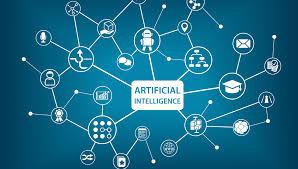
Artificial intelligence (AI) has emerged as a pivotal force driving business innovation across various sectors. As organizations increasingly rely on data-driven decision-making, AI’s ability to analyze vast amounts of information in real-time has transformed traditional business models and operations. This transformation is not merely a trend; it signifies a fundamental shift in how companies operate, compete, and deliver value to their customers.
AI encompasses a range of technologies, including machine learning, natural language processing, and robotics, which enable machines to mimic human intelligence and perform tasks that traditionally require human intervention. As such, AI has the potential to enhance efficiency, reduce costs, and foster creativity in ways previously unimaginable. For instance, businesses can leverage AI algorithms to analyze consumer behaviour patterns, predict market trends, and personalize customer experiences, leading to more informed strategic decisions.
One of AI’s most significant impacts is its ability to automate routine tasks, freeing up employees to focus on higher-value activities. In industries such as manufacturing, AI-driven robotics streamline production processes, minimize human error, and enhance productivity. Similarly, in customer service, AI chatbots can handle inquiries around the clock, providing immediate responses to customer needs while allowing human agents to tackle more complex issues. This shift not only improves operational efficiency but also enhances customer satisfaction, as clients receive timely and accurate information.
Moreover, AI facilitates innovation by enabling businesses to experiment rapidly with new products and services. Through predictive analytics, companies can assess market demands and make data-informed decisions about product development. For example, AI tools can analyze consumer feedback and social media trends, helping organizations identify gaps in the market and tailor their offerings accordingly. This agility in product development is essential in today’s fast-paced environment, where consumer preferences can change overnight.
Additionally, AI fosters collaboration and knowledge sharing within organizations. By utilizing AI-driven platforms, teams can access and analyze collective data insights, leading to more innovative solutions. These platforms can also facilitate remote collaboration, bridging geographical gaps and enabling diverse teams to work together effectively. As businesses become more interconnected, the ability to harness collective intelligence will be crucial for driving innovation.
However, the integration of AI into business processes is not without challenges even for newzealandcasinos online casino. Concerns around data privacy, the potential for job displacement, and ethical considerations regarding AI decision-making must be addressed. Companies must navigate these issues carefully to build trust with consumers and employees alike. Furthermore, investing in AI technology requires significant resources, and organizations must ensure they possess the necessary skills and infrastructure to implement AI effectively.
In conclusion, the role of artificial intelligence in business innovation cannot be overstated. It is reshaping how companies operate, interact with customers, and approach problem-solving. As AI continues to evolve, businesses that embrace this technology will likely gain a competitive edge, positioning themselves as leaders in their respective industries. The key to successfully leveraging AI lies in understanding its capabilities and limitations, fostering a culture of innovation, and addressing the ethical implications that accompany its use. As we move further into the 21st century, the synergy between AI and business innovation will undoubtedly define the future landscape of commerce, presenting unprecedented opportunities and challenges for organizations worldwide.


 Supply chain solutions are a critical aspect of making sure that
Supply chain solutions are a critical aspect of making sure that 





